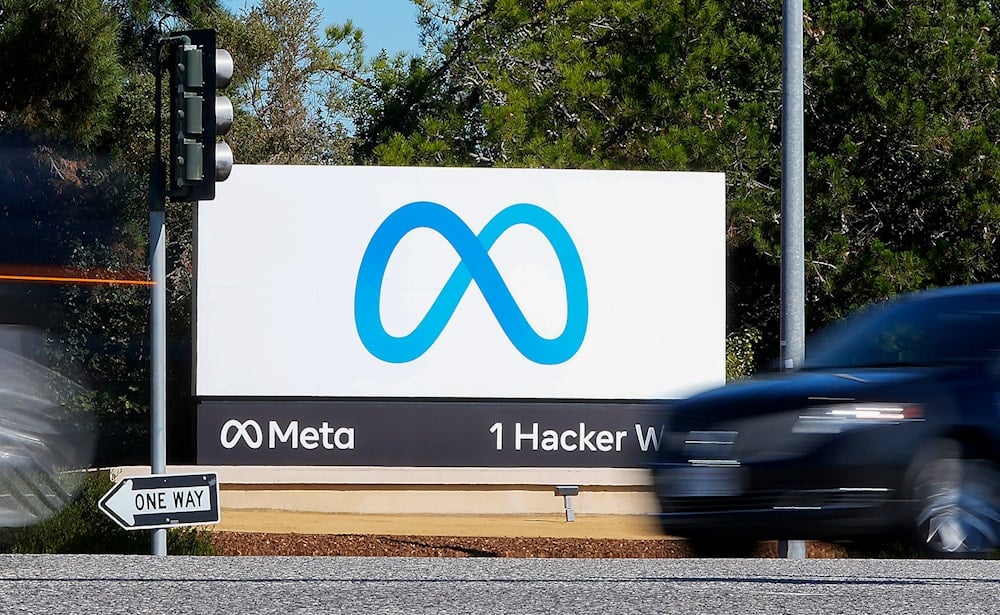Papua New Guinea mulls social media age checks; stirs censorship fears
Papua New Guinea plans new social media rules for 2025, including age verification via SevisPass ID, sparking debate over censorship and online safety.
-

A car passes Facebook's new Meta logo on a sign at the company headquarters on Oct. 28, 2021. (AP)
Papua New Guinea is in early talks with Meta to introduce age restrictions, aiming to limit harmful content, amid criticism that the government's previous approach to social media regulation has been overly aggressive.
A proposed social media policy for 2025, which the government expects will be taken to parliament later this month, would mandate that all users aged 14 and over secure a SevisPass digital ID prior to logging in to platforms such as Facebook, TikTok, Instagram, and X.
The government stated that the changes are necessary to combat online abuse, fake news, and scams, and as part of this effort, social media companies will be required to register in PNG, follow local laws, and a new national e-Safety Directorate will be established to monitor harmful content.
PNG’s information and communications technology department secretary Steven Matainaho informed The Guardian that "We are in early discussions with Meta on enforcing age verification as a start."
While officials declined to comment further, a government source informed The Guardian that the cabinet had approved the social media policy and that it would be tabled in parliament when it sits next month.
Countries eye Australia's social media ban
Papua New Guinea's proposed restrictions coincide with Australia's preparation to roll out its long-anticipated social media ban for users under 16. Governments and tech firms are closely observing Australia's approach, an effort that is expected to rely on artificial intelligence and behavioral data to estimate the age of users rather than implementing a blanket age-verification system.
Attempts to regulate online content and platforms have raised public concerns in PNG about restricted access to information and fears of censorship.
“On paper it sounds like protection, but in reality it could silence people who rely on Facebook or TikTok to speak out,” Jonathan Makil, a political science student at the University of Papua New Guinea, told The Guardian.
According to Emmanuel Tipi, a comedian known as KabbageGang on Facebook, the platform was “one of the most powerful tools for ordinary Papua New Guineans to share information, express themselves, and access news beyond traditional media."
“If the government introduces heavy-handed regulations such as ID registration, it risks silencing voices, especially those who rely on humour and creativity to educate and engage,” Tipi said, adding, “People may feel less free to interact, comment, or share because of fear of surveillance.”
Facebook shutdown creates harsh backlash
The government triggered outrage in March when it temporarily shut down Facebook as a "test" of its capabilities to regulate online content, using new anti-terrorism laws that provide the power to monitor and restrict online communication.
In the Pacific nation of around 11 million people, Facebook is the most popular platform, especially among 18–34 year-olds who commonly use it for political discussions and activism, even as the country struggles with the spread of misinformation and violent content.
The shutdown prompted widespread anger from users across PNG, despite the government's justification that its actions were designed to protect young people from harmful content.
Small business owner Sylvia Pascoe, who depends on Facebook to operate her events management company, stated that the shutdown caused widespread disruption without any explanation of its purpose or value, an omission which she argued only deepens public distrust.
“Social media isn’t just for fun for most people; for many people, this is their shopfront and their only source of revenue for feeding their families,” she said, adding, “The more they make life harder for ordinary people just trying to survive, the more that trust breaks down.”
Yuambari Haihuie, technology expert and activist, told The Guardian that attempts by the authorities to "silence discussion" on social media platforms should not be the way to make social media safer, suggesting instead that education can promote safe conduct and media literacy.

 4 Min Read
4 Min Read








